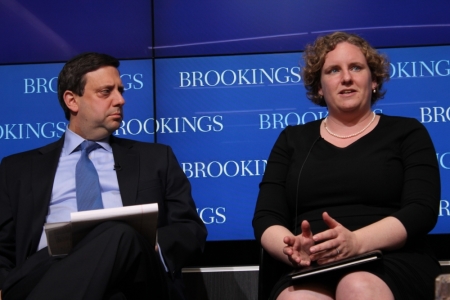Mormon Law to Balance Gay Rights, Religious Freedom Supported by Pro-Gay Rights Group Human Rights Campaign

The national LGBT advocacy group Human Rights Campaign is voicing its support for a Mormon Church-backed non-discrimination bill that was signed into Utah law last week, which is being touted by some as legislation that could be used as a "toolkit" for finding the middle ground between gay rights and freedom of religion in the workplace.
Last Wednesday, Utah lawmakers passed Senate Bill 296, which was inspired by a negotiated settlement between the Church of Jesus Christ of Latter-day Saints and Utah gay rights advocates. The law prohibits discrimination against LGBT persons in housing markets and in the workplace, while providing exemptions for religiously affiliated housing.
The law also protects people from being fired for any religious or political expression, or speech outside the workplace, and gives parity to religious or political expression inside the workplace.
At a Brookings Institution panel on Monday discussing the cooperation between the church and gay rights advocates in creating the bill, HRC legal director Sarah Warbelow argued that the passage of S.B. 296 is a vital step in the right direction for the state of Utah but that doesn't mean that the legislation can be simply taken and applied in other states or at the federal level.
"This bill is an appropriate and solid piece of legislation for the state of Utah and I can't emphasize that enough. It is not a model for the rest of the country. It is not a model for the federal government," Warbelow asserted. "The goal of the Human Rights Campaign and many of our allies and other organizations it to ensure that LGBT people are treated the same as all other protected classes. That's what happened here in Utah with regards to employment and housing."
In a press release, HRC president Chad Griffin also issued his support for the passage of the legislation.
"The passage of S.B. 296 is historic — a Republican majority has voted to expand Utah's existing non-discrimination protections to include the state's LGBT community for the very first time," Griffin said. "Equality Utah, the ACLU of Utah and the bipartisan group of legislators who worked around the clock to move this legislation forward have achieved an incredible and collaborative victory for the people of Utah."
Warbelow explained that the church's willingness to grant protections to the gay community is a bright sign for the future of the LGBT children and teens, especially those growing up in Mormon homes.
"One of the things I think it does particularly well is not even a direct consequence of the legislation but that is that it provides a path forward for LGBT youth growing up in Mormon homes, whose parents have been struggling with how to accept their children," Warbelow stated. "The church endorsing this legislation provides a critical path forward for embracing LGBT youth. We know that when youth are rejected from their families, regardless of their families background, they have higher rates of attempted suicides, the use of drugs and alcohol, dropout rates, so this is going to have a dramatically positive impact on the LGBT youth in Utah."
Although the panel's moderator, Brookings senior fellow Jonathan Rauch, said that HRC found "no downside" to S.B. 296, Warbelow asserted that HRC did not support the Utah legislature's passage of S.B. 297, which has not yet been signed into law by Gov. Gary Herbert.
S.B. 297 exempts court clerks who religiously oppose gay marriage from having to issue marriage licenses to gay couples but also ensures that should a clerk not be willing to issue a marriage license, the clerk's office is responsible for marrying the gay couple.
"An argument could be made that a clerk is an agent of the state and is required under the equal protection clause of the U.S. Constitution to treat all who came to doors equally," Warbelow explained. "That is why you see in Alabama where there are clerks who are refusing to marry same-sex and opposite-sex couples in order to avoid having an equal protection issue."
Although HRC and the Equality Utah felt as though they had equal say in the drafting of S.B. 296, Warbelow said the same could not be said in the negotiations for S.B. 297.
"This secondary bill is a bit more troubling to the LGBT community, in large part because we didn't feel like we were equal partners at the table from the beginning and weren't able to have the conversations that needed to be had around the legislation," Warbelow said.
Robin Fretwell Wilson, director of the University of Illinois College of Law's Family Law and Policy Program, argued that S.B. 297 is a vital aspect in the conversation between the church and LGBT advocates and without it included, the conversation would likely not be occurring.
"Without the second bill I don't think you have the first," Wilson said. "I think that if the religious right does not believe that they are going to have those protections, it can not push forward the other rights. They see them going hand-in-hand... I think the path of great assurance to religious believers protecting LGBT people in the community is [that the legislation is] not meant to wash out the religious character of their own community nor should it destroy the religious character of [their faith]."
Neither bill addressed the public accommodation aspect of the non-discrimination law, meaning that private businesses in Utah can still choose whether or not to service customers based on their sexual orientation.





















